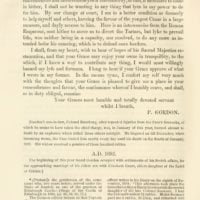![1690] DIARY OF PATRICK GORDON. 171 Most Christian King 1690] DIARY OF PATRICK GORDON. 171 Most Christian King](https://cdn2.picryl.com/photo/1699/12/31/1690-diary-of-patrick-gordon-171-most-christian-king-1c27ed-1024.jpeg)
Related
![1692] DIARY OF PATRICK GORDON. 179 Patrick Gordon of Cults](https://cdn2.picryl.com/thumbnail/1699/12/31/1692-diary-of-patrick-gordon-179-patrick-gordon-of-cults-aedde7-200.jpeg)
1692] DIARY OF PATRICK GORDON. 179 Patrick Gordon of Cults
![1661] DIARY OF PATRICK GORDON. 33 sence of the King](https://cdn2.picryl.com/thumbnail/1699/12/31/1661-diary-of-patrick-gordon-33-sence-of-the-king-a87f39-200.jpeg)
1661] DIARY OF PATRICK GORDON. 33 sence of the King
![1690] DIARY OF PATRICK GORDON. 169 regiments in line three deep](https://cdn2.picryl.com/thumbnail/1699/12/31/1690-diary-of-patrick-gordon-169-regiments-in-line-three-deep-7f03ff-200.jpeg)
1690] DIARY OF PATRICK GORDON. 169 regiments in line three deep
![1689] DIARY OF PATRICK GORDON. 165 memory, the younger Czar](https://cdn2.picryl.com/thumbnail/1699/12/31/1689-diary-of-patrick-gordon-165-memory-the-younger-czar-b525cd-200.jpeg)
1689] DIARY OF PATRICK GORDON. 165 memory, the younger Czar
![1696] DIARY OF PATRICK GORDON. 185 for a just cause is rewarded](https://cdn2.picryl.com/thumbnail/1699/12/31/1696-diary-of-patrick-gordon-185-for-a-just-cause-is-rewarded-d5c23a-200.jpeg)
1696] DIARY OF PATRICK GORDON. 185 for a just cause is rewarded
![1699] DIARY OF PATRICK GORDON. 193 ' A number of Strelitzes were executed](https://cdn2.picryl.com/thumbnail/1699/12/31/1699-diary-of-patrick-gordon-193-a-number-of-strelitzes-were-executed-26b730-200.jpeg)
1699] DIARY OF PATRICK GORDON. 193 ' A number of Strelitzes were executed

136 DIARY OF PATRICK GORDON. [1686 Queens hand; whereat his Majestic smileing

174 DIARY OF PATRICK GORDON. [1692 be restored. As for Harie Gordon
![1686] DIARY OF PATRICK GORDON. 155 Crossing the Black River](https://cdn2.picryl.com/thumbnail/1699/12/31/1686-diary-of-patrick-gordon-155-crossing-the-black-river-daa006-200.jpeg)
1686] DIARY OF PATRICK GORDON. 155 Crossing the Black River
1690] DIARY OF PATRICK GORDON. 171 Most Christian King
Summary
Passages from the diary of General Patrick Gordon of Auchleuchries : A.D. 1635-A.D. 1699"
1690] DIARY OF PATRICK GORDON. 171
Most Christian King, which, perhaps, he will not send because he will not
seeme to be seeking-. Yet it might breed great ombragies and jealousies in
our neighbours, albeit it were but a complement. I shall think myself much
honoured by receiveiug a hue from your Grace. The way of Poiland is not
the best, because of the suspicions and jealousies ariseing betwixt these
nations. So, committing your Grace to the protection of the Omnipotent, I
desire still to be esteemed
Your Graces most humble servant,
P. GORDON.
Pray cause forward the enclosed.
FOR HIS EXCELLENCY THE EARLE OF MELFORT, AT ROME.
Mosco, 15 Novembris, 1690.
May it please your Excellency,
I find myself honoured with your acceptable of the fyfthe of
August, some posts ago. I am glad to heare of the least hopes or ap-
pearance of any good in his Majesties effaires, and am soiTy that in Irland
things have gone so cross. Wee have nothmg here but w^hat wee learne
from the Hollands Gazctts, from which, though partiall, wee may gather
that all does not go in our countreyes according to Orange his washes ; so
that it may be hoped that by tyme a strong partie may appear, and act
vigorously for his Majesties restauration. I wonder how they can endure
so long such slavery and oppressions by forreigne forces, and intollerable
taxations, I looke upon that revolution as another conquest by a medley
of forreigne nations. I am sorry that I must, in such a tyme, be a looker
on, and not capacitated to serve his Majestic with any thing but prayers,
wishes, and goodwill. Wee have not here been in a condition to act any
thing this summer, but are resolving of doing some thing the next, to please
our allyes. I have nothing else now, but still desire to be esteemed
Your Excellencys most humble servant,
P. GORDON.
[He wrote to his son John at the same time. On Christmas Eve, he notes in his Diary :]
In towne. The copy of the letter from the pretended King of England, December
calling himself William the Third, and dated the third of June, interpreted,
and no further notice taken of it, upon pretension that the Hollands Resident
Gordon was brought up and remained a lifelong Roman Catholic, at a time when the Church was being persecuted in Scotland. At age of fifteen, he entered the Jesuit college at Braunsberg, East Prussia, then part of Poland. In 1661, after many years experiences as a soldier of fortune, he joined the Russian army under Tsar Aleksei I, and in 1665 was sent on a special mission to England. After his return, he distinguished himself in several wars against the Turks and Tatars in southern Russia. In recognition of his service he was promoted to major-general in 1678, was appointed to the high command at Kiev in 1679, and in 1683 was made lieutenant-general. In 1687 and 1689 he took part in expeditions against the Tatars in the Crimea, being made a full general. Later in 1689, a revolution broke out in Moscow, and with the troops under his command, Gordon virtually decided events in favor of Peter the Great against the Regent, Tsarevna Sophia Alekseyevna. Consequently, he was for the remainder of his life in high favor with the Tsar, who confided to him the command of his capital during his absence from Russia. In 1696, Gordon's design of a "moveable rampart" played a key role in helping the Russians take Azov. One of Gordon's convinced the Tsars to establish the first Roman Catholic church and school in Muscovy, of which he remained the main benefactor and headed the Catholic community in Russia until his death. For his services his second son James, brigadier of the Russian army, was created Count of the Holy Roman Empire in 1701. At the end of his life the Tsar, who had visited Gordon frequently during his illness, was with him when he died, and with his own hands closed his eyes. General Gordon left behind him a uniquely detailed diary of his life and times, written in English. This is preserved in manuscript in the Russian State Military Archive in Moscow. Passages from the Diary of General Patrick Gordon of Auchleuchries (1635–1699) was printed, under the editorship of Joseph Robertson, for the Spalding Club, at Aberdeen, Scotland, 1859.
